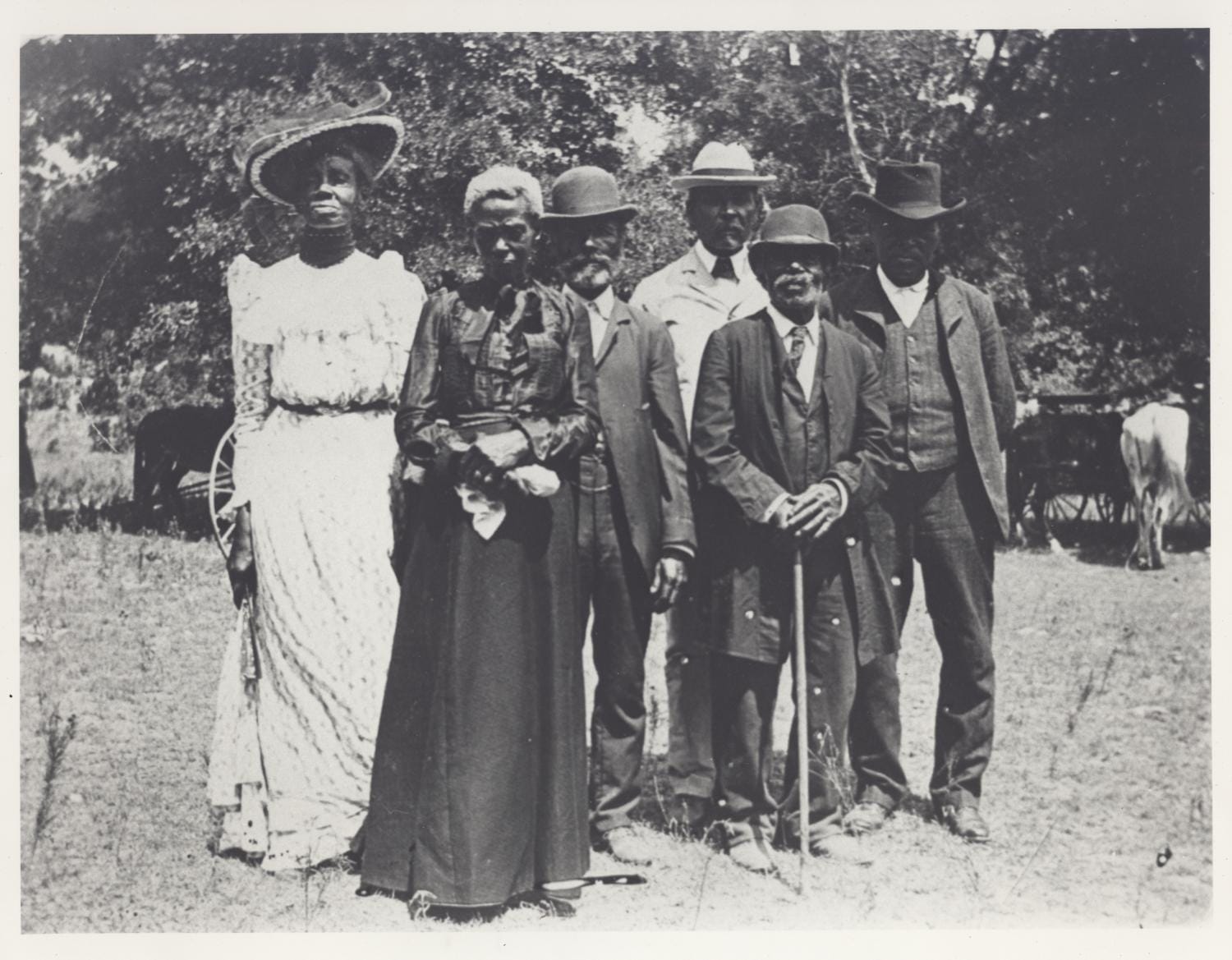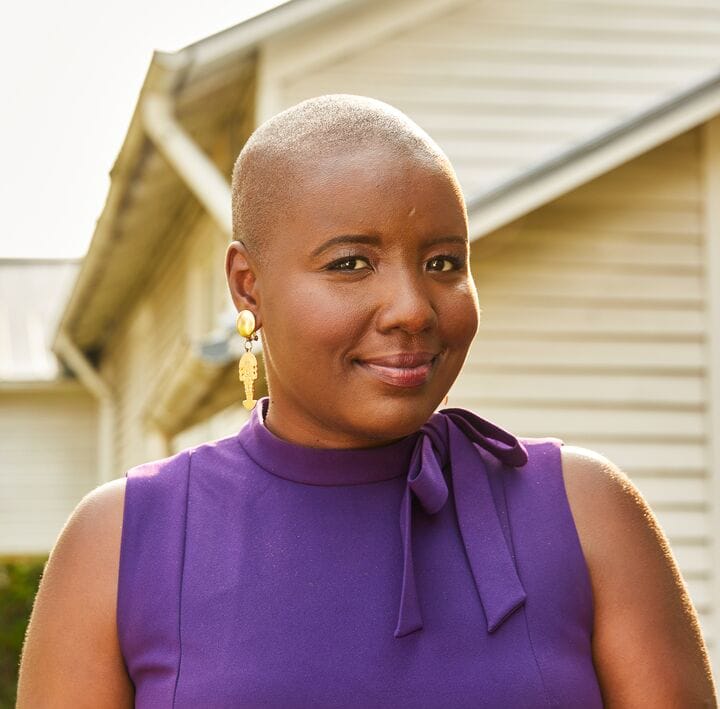Growing Up Without Juneteenth
I didn’t grow up celebrating Juneteenth. Not all Black Americans do. I’m from Tennessee, and—for a long time—Juneteenth was a holiday recognized primarily in Texas and Louisiana. It’s a regional holiday that became a national one. I did, however, grow up going to African street festivals, Black family reunions, classics and homecomings at historically Black colleges and universities, and other Black celebrations that evoke similar feelings of strength and belonging.
As TPL’s national Black History and Culture director, I think about land—a lot. I think about the ways it’s used by and meaningful to all people. This is why Juneteenth is important to me in my role at TPL: because it marks a time when Black Americans began to use public land for their own purposes.
As you may know, Juneteenth marks the day, June 19, 1865, when Union troops arrived in Galveston, Texas, and announced that enslaved people were free by executive decree.
Other Emancipation Days
But Juneteenth isn’t the only Emancipation Day celebrated in this country. The first was in Washington, DC, in 1862, when Congress passed the Compensated Emancipation Act to end slavery there, and the bill was signed into law. Mind you, this was a year before the Emancipation Proclamation, which marks the second Emancipation Day, on January 1, 1863.
In fact, Juneteenth is one of many emancipation days. It’s the one now known for spreading the final word of freedom. But the “news,” when shared with enslaved people in Galveston, wasn’t news at all. It’s a common misconception that Black people didn’t already know they were free.
Interviews with Former Slaves
In 1937, the Works Progress Administration published a landmark series of interviews with former slaves, many of whom said they were aware of the 1863 Emancipation Proclamation long before they were granted their freedom. “I done heard [in March of that year], but they didn’t turn us loose then,” said Henry Lewis, a Black man born in 1835 in Pine Island, Texas, northwest of Houston.
Enslaved people knew. But when the period of legal enslavement ended, there was no slavery-to-freedom transition or 12-step program, no mass psychological counseling, no job corps, no fifty bucks to help you on your way. Many Black people were, in essence, stuck where they were.
Searching for Family and Celebrating Freedom
Immediately, however, Black Texans began the search for family members, and very soon after started celebrating Emancipation Day. In 1872, four formerly enslaved Black men secured a permanent home for Juneteenth celebrations in Houston. They pooled their money, purchased 10 acres of land, and named the place Emancipation Park. In 1916, the land was donated to the city. It still exists today as Houston’s oldest park.
Let that sink in: a group of people who’d been held in dehumanizing captivity for much of their lives amassed enough resources to secure a landscape for annual freedom celebrations just seven years after gaining their freedom. That’s pretty incredible.
The Role of Public Parks
Black people have used public parks as settings for community building from the late 19th century to the present. Juneteenth is no different. Public parks allow people to engage in cultural connections that satisfy needs beyond what their nuclear families or personal situations may provide.
The events in my own history that are akin to Juneteenth celebrations—the parades and festivals—included kids’ dance groups, high school bands, and church step teams; they’re proving grounds. I remember watching the festivities when I was very young and looking forward to participating in them when I got older—to being out in front of my community. Now, I’m the adult cheering the younger ones on from the crowd. These gatherings and annual emancipation celebrations are different, but they all facilitate intergenerational cultural transmission and memory making. That’s powerful to me.
Celebrating Juneteenth Today
This is how Juneteenth is celebrated—now and long before it was a national holiday: by Black communities gathering outdoors, on public land, and asserting our humanity. By elevating and rejoicing in our culture, we remind ourselves that we have worth. We are loved and have a place to belong.
Black people have been leveraging public land for our collective benefit for a long time. Street festivals, church picnics, cookouts, family reunions, and Juneteenth celebrations happen on public land—and represent a consistent way we connect to public land. They are places where Black folks can see our own beautiful reflections and share that beauty with the next generation. These events provide the opportunity to use land—the same land our ancestors worked on and invested in—as a space to exert our freedom.
We can use public land to do so many things: feed people, educate people, employ people, raise policy awareness, and build community. In these spaces, we can reconcile the past and realize who we actually are, and that gives us the backbone and fortification to go boldly into our future.
Dr. Jocelyn Imani is TPL’s national director of Black History and Culture. Learn more about her vision here.
Featured image: Americans celebrating Juneteenth in the East Woods of Austin, Texas on June 19, 1900. Credit: Emancipation Day Celebration, June 19, 1900, PICA 05476, Austin History Center, Austin Public Library
This essay originally appeared in the spring/summer 2024 edition of TPL’s member magazine, Land&People; donate to subscribe. An alternate version was published by the Houston Chronicle in June 2024.

Donate to become a member, and you’ll receive a subscription to Land&People magazine, our biannual publication featuring exclusive, inspiring stories about our work connecting everyone to the outdoors.


